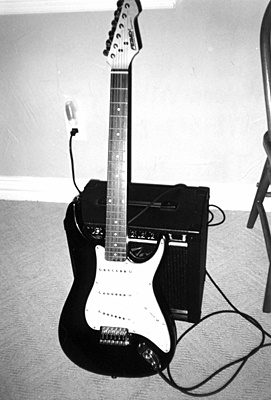All Nonfiction
- Bullying
- Books
- Academic
- Author Interviews
- Celebrity interviews
- College Articles
- College Essays
- Educator of the Year
- Heroes
- Interviews
- Memoir
- Personal Experience
- Sports
- Travel & Culture
All Opinions
- Bullying
- Current Events / Politics
- Discrimination
- Drugs / Alcohol / Smoking
- Entertainment / Celebrities
- Environment
- Love / Relationships
- Movies / Music / TV
- Pop Culture / Trends
- School / College
- Social Issues / Civics
- Spirituality / Religion
- Sports / Hobbies
All Hot Topics
- Bullying
- Community Service
- Environment
- Health
- Letters to the Editor
- Pride & Prejudice
- What Matters
- Back
Summer Guide
- Program Links
- Program Reviews
- Back
College Guide
- College Links
- College Reviews
- College Essays
- College Articles
- Back
Manushag
Jacob Kokot’s first love was of words, strung and tailored into the sweet lilting melodies of music. This was first encountered in the lullabies his mother sang to him—thoughtful and magical and in a language he did not understand. He did not quite know how to describe them yet, but he reckoned that one day, he would think of something—something poetic, something as fluent as the thoughts running through his head. As she sat on his bed and murmured what to him sounded like the noises made by quarreling birds (he later learned it was Armenian), he lay down, pretending to sleep, imagining accompaniments of flutes and tambourines and the pure American ring of a guitar. Sometimes there would be a piano, and, at its most exuberant moments, horns. Shushan Kokot would leave his room after an unspecified amount of time—sometimes five minutes, sometimes an hour—and Jake would lie in bed, unable to get those songs out of his head and yearning to be anywhere but where he was.
His mother’s visits stopped the year he turned six, for that was the year that two very important things happened. The first was that Jake’s mother died. The second was that his sister Marissa was born.
His brothers—there were Bruno and Baruch, a year his juniors; Sammy, born a year after them; Levon, two years after Sammy; and Asher, a year after Levon—suspected a rat about the former affair, despite the fact that most of them were babies and could hardly comprehend anything anyway. For a good week in the Kokot house everyone was crying—partly because the kindly and beautiful brown-skinned lady who had fed them and kissed their bruises was inexplicably no more, and partly because they now had to share the house with a miniscule blob of blue eyes and blankets whom their father identified as a “girl.”
What Jake didn’t like about his mother’s death was that the lullabies would stop, the woman he loved would be held captive in a metaphysical realm forever, and, if Cinderella on VCR had taught him anything, she would inevitably be replaced by an evil stepmother. When four months passed and no evil stepmother materialized, Jake deemed it safe to get into the habit of sitting by the increasingly animated blue-eyed blob’s cradle, singing her the lullabies he had memorized by every incomprehensible syllable. When he ran out of the songs he knew and she started to cry, wanting more, he would spit out hushed renditions of that which he heard on the radio.
And that was how Marissa Kokot grew up having been lulled to sleep by, “I Can’t Get No (Satisfaction).”
Meanwhile, Jake was beginning to learn that this violet-eyed soft creature—the “girl”—had a name. It was Marissa, which was hideous. “Marissa” was a name fit for the fat, disillusioned women who worked at Staples, or else a small-eyed, tanned, ugly future cougar who spent her summer nights prowling the boardwalk. This was an innocent human being who liked laughing and, besides, between Armenian lullabies and the Rolling Stones was developing a good taste in music. “Marissa” was plainly unacceptable as a name choice.
He made this clear to Jacob Kokot, Senior, the day the latter walked in and asked how “Marissa” was doing.
His small, dark-eyed son tilted his pale chin towards him as he spoke.
“Her name’s not Marissa.” He said the name Marissa like some people say the word manure.
“Her name’s not Marissa?” Jacob Kokot, Sr., inquired. He had a thick Croatian accent, so thick that Jake could remember watching the Count on Sesame Street and thinking: Really?
Jake shook his head.
“What is it, then?”
“Manushag.”
Jacob Kokot, Sr., thought that if his six-year-old son had any objection to Marissa, Manushag was even worse.
“What?”
Jake lifted up his head. “But it’s because of her eyes. They’re not blue, Papa. They’re violet, like the flowers Mama liked. Manushag means violet.”
“Stop this right now. Your sister is not named Manushag.”
“Manushag,” Jake replied defiantly, unapologetic despite the ensuing spanking.
And from then on, as before, everyone who knew her called her the same name: Marissa. Yet there was always her eldest brother Jake, who never called her such a degrading congregation of syllables in his lifetime. Manushag she remained.

Similar Articles
JOIN THE DISCUSSION
This article has 0 comments.
